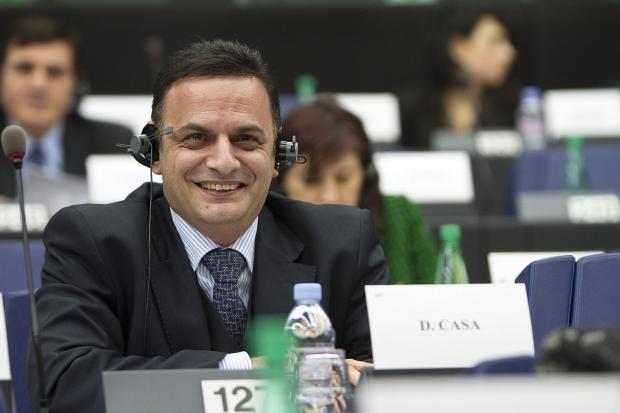“Media freedom and pluralism are fundamental rights enshrined in Article 11 of the EU Charter of Fundamental Rights. However, the EU has no general powers to intervene with Member States in the area of fundamental rights” European Commission Vice-President Andrus Ansip said when replying to a question by Maltese MEP David Casa regarding the garnishee orders imposed against journalist Daphne Caruana Galizia.
The libel cases and precautionary warrants of €47,460 were filed by Economy Minister Chris Cardona and his EU Presidency policy officer Joe Gerada after Mrs Caruana Galizia alleged on her blog that the men had visited a brothel while on official business in Essen, Germany. Both men deny the claims.
Dr Casa said that this “amounts to a brazen act of political censorship against the free press by the minister of a Member State government. The act is shocking, and sets a precedent for further harassment of the press by the Maltese government.”
The Vice-President said that according to Article 51(1) of the Charter of Fundamental Rights of the EU, the provisions of the Charter are addressed to Member States only when they are implementing Union law.
“Based on the information available, this does not appear to be the case in the situation described by the Honourable Member” he said.

In such cases, he explained, it is for Member States, including their judicial authorities, to ensure that fundamental rights are effectively respected and protected in accordance with their national legislation and international human rights obligations.
He then said that the “Commission is aware of challenges to media freedom and pluralism in several Member States. The 2016 EU Colloquium on Fundamental Rights was focused precisely on media pluralism and democracy.”
When asked as to whether Commission intended to take further initiatives following those which have already been taken in the field of media freedom and pluralism in the EU, Vice-President Ansip added that the Commission was funding independent projects in the field of media freedom and pluralism, with the support of the Parliament.
One of these is the Media Pluralism Monitor (MPM), which is run by the European University Institute and monitors risks to media pluralism in Member States, including Malta.
The International press Institute (IPI) is also active with an EU-funded project dealing with this issue.
The Institute along with the European Federation of Journalists, International Federation of Journalists, and the Index on Censorship Committee to Protect Journalists have submitted a complaint on Mrs Caruana Galizia’s case to the Government of Malta.
“The project aims to address the risk that the abuse of defamation laws, and of criminal defamation laws in particular, poses to the public’s right to information in the EU and in Candidate Countries” the Vice-President’s reply read.